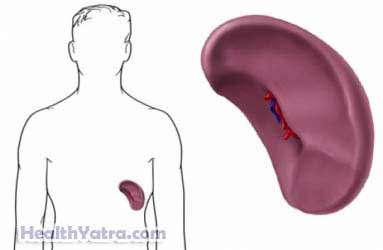Definition
Immune thrombocytopenia purpura (ITP) is a bleeding disorder. It is a reduction in the number of platelets in your blood. Platelets are small cells in your blood that can stick together to form blood clots. These clots help stop bleeding at injury sites. Low platelet levels with ITP makes it easier to develop bruises or bleed even with minor injuries.
There are two types of ITP:
- Acute ITP
- Lasts less than six months.
- Usually occurs in children.
- Most common type of ITP.
- Chronic ITP
- Lasts longer than six months.
- Usually occurs in adults.
ITP can be treated. If you think you have ITP, call your doctor.
Causes
ITP is caused by a problem with the immune system. The immune system places a tag on platelet cells. This tag mistakenly identifies platelets as foreign or “bad” material. Organs like the spleen and liver will then remove the marked platelets as they pass through in the blood. Gradually, this process will reduce the number of platelet in your blood. Eventually, the decreased levels of platelets will be severe enough to interfere with the blood’s ability to clot.

For most ITP, it is not clear what causes the problem with immune system. In children, ITP is often associated with a recent infection with a virus. ITP in adults has not been linked to viruses.
Some cases of ITP are thought to be caused by drugs or other immune disorders.
Risk Factors
People with increased chance of developing ITP include:
- Children with a recent viral infection or live virus vaccination
- Women—2-3 times more likely to get ITP than in men
- Women younger than 40
Symptoms
If you have any of the following, do not assume it is due to ITP. These may be caused by other, less serious health conditions. If you have any one of them, talk to your doctor.
Both adults and children may notice the following symptoms:
- Easy bruising
- Blood in urine or stools
- Bleeding for longer than normal following an injury
- Unexplained nosebleeds
- Bleeding from the gums
- In adult women, heavier-than-normal menstrual periods
- Red dots—may occur in groups and resemble a rash
- Bleeding within the intestinal tract or brain (rare)
Diagnosis
Your doctor will ask about your symptoms and medical history. A physical exam will be done.
Blood tests will be done. The doctor may use these test to:
- Test your blood’s clotting ability
- Analyze levels of different blood cells including platelets
- Look for infections or other medical issues associated with ITP
- Eliminate other medical conditions
Platelets are created in your bone marrow. If your platelets are low your doctor may sample your blood marrow. This is done to eliminate conditions that may be interfering with the production of platelet cells.
Treatment
Treatment for ITP is different for children and adults. ITP is short term in most children. Most children will recover without any treatment. Adults are more likely to develop a chronic form of ITP. Not all of these chronic ITPs will require treatment either. Talk with your doctor about the best plan for you.
Some treatment options include:
Medications
Medication may help to either slow the destruction of platelet cells or increase production of platelets. The overall goal is to maintain a healthy level of platelets in the blood.
To increase platelet counts in the blood, your doctor may recommend:
- Steroids—to lowers the activity of the immune system. This will decrease the destruction of platelets.
- Gamma globulin infusions—also slows down platelet destruction. An infusionmeans that it is given by IV or through a shot. It usually works more quickly than steroids.
Both of these treatments work but both can have side effects.
Two new drugs are being used to stimulate platelet production:
- Eltrombopag (Promacta)
- Romiplostim (Nplate)
Use of these and a medication called rituximab (Rituxan) may prevent the need for surgery.
Surgery
A splenectomy may be done if medication is not effective enough.
A splenectomy is the removal of the spleen. The spleen is the main site of platelet destruction. Without your spleen, your platelet levels should begin to improve. However, the missing spleen also makes you more vulnerable to certain infections. This surgery is usually not done until all medication option have been tried.
Activity Changes
You may be asked to avoid certain activities when your platelet counts are low. This may include avoiding contact sports or wearing a helmet.
Prevention
Since the cause of ITP is unknown, there are no specific ways of preventing it. However, bleeding and injury can be serious for people with ITP. To decrease the chance of bleeding injuries:
- Take precautions in your child’s environment. Consider padding an infant’s crib or play area.
- Make sure that older children wear helmets and protective gear when playing sports. This will help to reduce bruising injuries.
- Consider temporarily stopping contact sports such as football and even rougher game playing when platelet counts are low.
- Avoid medications that contain aspirin or ibuprofen . These medicines can reduce platelet activity.
To help stay healthy, you should:
- Eat a healthful diet. It should be low in saturated fat and rich in whole grains, fruits, and vegetables.
- Get regular exercise.
- If you are overweight, lose weight.
- Don’t smoke. If you smoke, quit.
- Drink alcohol only in moderation. Moderate alcohol intake is two drinks per day for men and one drink per day for women.
